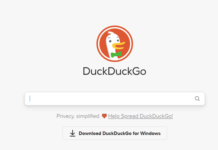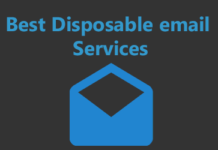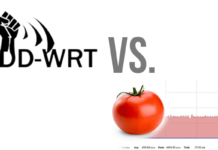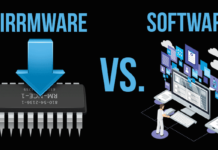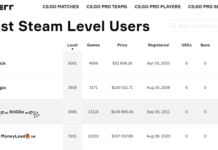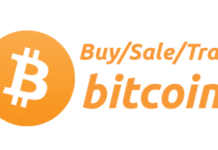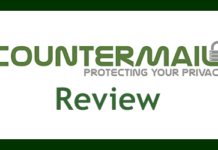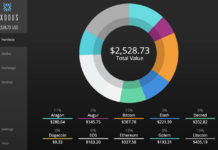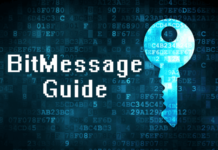The best privacy tools Everyone Must have in their PC is the type of article that cover all necessary tools that can protect your digital footprint on the internet. You can explore the internet without spying Govt Agencies, Big Five Eyes, Authorities and etc. If you’re concerned about your online privacy, you need to look no further.
In this guide, I’ve discussed every single aspect of your privacy that needs protection. All the tools you’ll need, the things you need to look out for and everything else.
The best part? Most of these tools are 100% free! You heard that right. Privacy doesn’t have to be expensive.
By the end of this piece, you’ll be invisible to your ISP/govt. and even the law enforcement agencies.
Let’s get started then?
Best Privacy Tools to Protect Your Anonymity Online
Before we talk about the best Privacy tools, let’s talk about the best privacy “factors”?
You need to know what you need protection from before you can secure yourselves, don’t you?
So, I’ve crafted this article such that I’ll always discuss the leak-factor first, and then the tools you can use to patch that leak.
I’ve also discussed (briefly) how to select the best tools in each category!
However, here’s a list of everything that’s included in this article, This guide have huge content that’s why you can select any specific tools directly in the below given table.
Best VPN Services for IP Address Hiding or Masking
You connect to the internet using your IP address. This IP Address is assigned to you by your internet provider. It’s specifically dedicated to YOU. No one else has the exact same IP address.
The IP address is how you’re identified on the web. Everything you do on the internet is traced back to your location and identity using this IP address.
Every website you visit, every order you place, and everything you search for is recorded and attached to your IP address.
In fact, every website owner (including me) has access to your IP address once you visit the sites. Even though we don’t use the information, not everyone is as harmless.
If you can change/hide this IP address, without your ISP knowing about it, your activities can no longer be traced to you, or to your location.
It sure doesn’t seem like an easy task, does it? Fortunately, it is.
The solution is VPN services
This is the best, most secure privacy tool you can get started with.
VPNs are an abbreviation for “Virtual Private Networks”. Despite the somewhat complicated name, they’re extremely simple to use and understand.
A VPN’s primary job is to “hide your IP address”. A lot of people think a VPN “changes” their IP address but that’s not what a VPN does.
The VPN acts as a mediator between you and your internet connection. It routes your internet traffic first to itself, then assigns you a new IP address, and this IP is then used for all your activities.
Apart from that, a VPN does more to add to your privacy than any other individual tool. E.g. it encrypts your connection so that you aren’t hacked when using free public Wi-Fi at cafes or restaurants.
The question now is, which VPN should you use? There are hundreds of VPNs in the market and every VPN claims it’s the best!
| VPN Logo | Features | Price/Month | Running Offers | Read Review |
|---|---|---|---|---|
No Log Policy: Yes Simultaneous Connections: 10 No. of Server: 5500+ Support Protocol: PPTP, L2TP, OpenVPN, Proxy, NordLynx No. Countries Support: 61 | $3.49 | Get NotdVPN today and Get 68% off + 3 Month Free | NordVPN Review | |
No Log Policy: Yes Simultaneous Connections: 5 No. of Server: 850 Support Protocol: PPTP, L2TP, OpenVPN No. Countries Support: 60 | $2.49 | Grab SurfShark today and Get 83% off + 3 Month Subscription Free | Surfshark VPN Review | |
No Log Policy: Partial Logs Kept. Simultaneous Connections: 3 No. of Server: 1500+ Support Protocol: PPTP, L2TP, OpenVPN, SSTP No. Countries Support: 96 | $8.32 | Get 35% OFF Today | ExpressVPN Review |
Well, here’s how you should pick your VPNs:
- VERIFIED “no log” policy: Your VPN must have a “no log” policy and it must be verified by an independent security audit firm.
- Jurisdiction: The VPN must be operated from/ headquartered in a region that respects privacy and doesn’t have mandatory data retention laws. E.g. a VPN that’s based out of the U.S/India/UK/Canada etc. are the worse choices. Any VPN that’s housed in the five-eyes nation isn’t a good choice either.
- Anonymous Onboarding: The VPN must not ask for any real and personally-identifiable data (name/address/contact number). It also needs to facilitate Cryptocurrency payments to be truly anonymous.
- Other Advanced Features: VPNs can add to their security by offering features such as double VPN, IP rotation, split tunneling etc. Not all VPNs offer these but it’s best to go with those which do.
- Speed: The VPN must not reduce your speed significantly.
- No of Countries and Servers: How many countries the VPN lets you connect to and servers you can choose from is a major factor as well. This also affects your speed.
- No of Simultaneous Connections: This is the no. of devices that can use your VPN account, at the same time. The more, the better.
Well, here are the best VPNs you can go with. I’ve also explained in detail why each of these is the best.
NordVPN
![]() Website: https://www.nordvpn.com
Website: https://www.nordvpn.com
NordVPN is the best VPN on the planet. It’s a simple statement based on the fact that no VPN offers as many, as advanced or as secure features, for the price NordVPN does.
For starters, NordVPN has a very strict “no logs” policy. This means, the VPN doesn’t store your originating IP address. No activity logs are stored either.
The best part? This “no logs” policy is verified by independent and third-party firms. This helps you avoid those fake VPNs which often collude with govt. agencies against you.
The company operates out of Panama. A country where the U.S/ U.K or any other 5-eye/14-eye nations have absolutely no jurisdiction.
Obfuscated servers are one of the most desirable yet rarest VPN features in the industry. NordVPN does offer obfuscated servers. These add an extra layer of cloak to your VPN connection. Once enabled, even your ISP won’t know that you’re using a VPN.
Then, the VPN offers a “Double VPN” feature. It changes your IP address “twice” before you’re connected to the web.
The “Onion over VPN” is another very exclusive feature. It routes your connection via the Onion network. That adds massive privacy to your connection and you can even access .onion sites.
It even has a “Dark web monitor” that most VPNs do not offer. It basically scans the dark web and informs you if and when your data is found up for sale.
A very handful of VPNs offer “dedicated IPs” and NordVPN is one of them. This lets you enjoy all the benefits of a residential/static IP without compromising your privacy/identity.
It also is the VPN with the second-highest number of servers in the industry. Its 5600+ servers ensure you get the fastest possible speeds. On top of that, there’s WireGuard protocol which is the fastest VPN protocol that doesn’t compromise on your security
Split Tunneling while isn’t a “privacy” feature still is a desirable feature. It lets you route some apps/activities via the VPN while excluding the VPN for other connections.
It even has a “Threat Manager”. It protects you from ads, malware, fake sites etc.
Additional features such as Meshnet, Netflix unblocking capabilities, 24X7 live-chat are available as well.
Even from a financial standpoint, NordVPN costs less than $3.50/month but a single NordVPN can be used on 6 devices simultaneously.
If you need privacy tools, you must start with a VPN. With NordVPN, you get a very generous 30-day refund policy as well.
Surfshark
Website: https://www.surfshark.com
![]() If there’s a VPN I’d recommend after NordVPN, it’s 100% Surfshark. That’s because Surfshark has this ultra-rare feature of “rotating IPs”.
If there’s a VPN I’d recommend after NordVPN, it’s 100% Surfshark. That’s because Surfshark has this ultra-rare feature of “rotating IPs”.
It’s their newest feature but certainly the most impressive. During your entire VPN session, your IP address keeps changing/rotating.
This makes tracing you nearly impossible. Anyone who follows your IP address will lose your track as soon as it changes.
Worst case scenario? Even without the rotation, those tracking you can only follow you till your Surfshark IP.
That’s because Surfshark has a very strict “no logs” policy. As a result, they can’t help any govt. or law agency even if they wanted to. Yes, the “no logs” policy has been independently audited.
With the Netherlands as their base of operations, Surfshark has no fear of being subjected to privacy-invading laws from U.S/U.K or any other similar nations.
The VPN is so serious it doesn’t even use hard-disk servers. Everything stays on the RAM and is wiped once the server is rebooted.
Another major privacy boosters from Surfshark are their obfuscated servers. Your ISP or govt. will never know you’re using a VPN!
Its CleanWeb feature keeps phishing websites, trackers and malware away as well. The Split Tunneling we discussed with NordVPN is available with Surfshark as well.
One of Surfshark’s best features? You only purchase the VPN once! You then get to use it on unlimited number of devices.
There’s of course a live-chat in case you ever need help. Surfshark actually has the lowest entry point on this list and sells for $2.39/month. Of course if you aren’t happy, you get a full refund within 30 days.
AtlasVPN
Website: https://atlasvpn.com
![]() AtlasVPN is a U.S-based VPN. Why then are we even considering it? I get it; a lot of you (including me) follow a strict no-U.S policy with our VPNs. Well, there are a few reasons which made me list AtlasVPN here.
AtlasVPN is a U.S-based VPN. Why then are we even considering it? I get it; a lot of you (including me) follow a strict no-U.S policy with our VPNs. Well, there are a few reasons which made me list AtlasVPN here.
For starters, the VPN does have a “no logs” policy, more importantly, this has been verified independently.
Then, the VPN brought in a few of the most unique features I’ve ever seen. These are:
- SafeSwap: Imagine these to be “rotating IPs”, your IP keeps changing and rotating as long as you’re connected to the VPN. Doesn’t require you to “re-connect” or establish a new connection. This is continuous. All the IPs are from the same location though so you get whatever geo-benefits you’re seeking.
- MultiHop+: This is like Safeswap, your IPs are constantly changing but you get a new location everytime.
Split Tunneling is available as well. It too has its version of Threat Manager/CleanWeb and calls it “SafeBrowse”. As expected, this protects us from ads, malicious websites, malware etc.
There’s no limit on the no. of devices you can connect. WireGuard protocol takes care of the speed as well.
It has a total of 750 servers and lets you connect to 45 different countries.
It’s the cheapest VPN on this list, starting at $1.83/month. Yes, the 30-day refund policy does exist as well.
Not feeling your wallet? AtlasVPN can be used 100% free. Sure, the plan has limitations but it gives you a neat idea of everything it’s capable of!
ExpressVPN
Website: https://expressvpn.com
![]() I’ll be honest, I’m not the biggest ExpressVPN fan. That’s simply because ExpressVPN doesn’t offer double VPN (2X IP change) or SafeSwap-like (IP-rotating) features. It also only allows 5 simultaneous connections which is the lowest on this list.
I’ll be honest, I’m not the biggest ExpressVPN fan. That’s simply because ExpressVPN doesn’t offer double VPN (2X IP change) or SafeSwap-like (IP-rotating) features. It also only allows 5 simultaneous connections which is the lowest on this list.
Fortunately, Split Tunneling is one of the features that’s not missing.
It does have 4 locations in Canada, the locations are Toronto, Montreal and Toronto. It sure performs pretty good as far as speed is concerned.
The total number of servers isn’t known, however, it does offer 94 countries to choose from!
Of course, it doesn’t store logs. It wouldn’t be at any position on this list of Canada VPNs if it did. And yes, it’s not just a “claim”, this has been verified.
It also has a live-chat in case there are questions you’d like answered. ExpressVPN also doesn’t store any data on its servers and uses RAM-only servers.
It too protects you from additional threats such as malware, fake sites, ads etc.
The last reason why the VPN is mentioned last on this list? Despite lacking multiple features, it’s the most expensive. The lowest entry point is $8.32/month. There sure is a 30-day refund policy.
PureVPN
Website: https://purevpn.com
PureVPN is on this list because I kept “obfuscated servers” a priority for this list. Yes, PureVPN can’t be detected as a VPN either. On top of that, it’s one of the only VPNs that offer a “dedicated IP” (after NordVPN).
The VPN does offer iron-clad privacy and security. For starters, its “no log” policy has been audited twice! It’s the only VPN that did this. The VPN is based out of British Virgin Islands, again, a nation that loves privacy and respects your rights.
It’s also one of the fastest VPNs in the industry. That’s not only because it offers WireGuard protocol, which it does; but also because it has 6500+ servers. It’s the only VPN that has this many servers and this ensures blazing-fast speeds.
There also is a content filtering feature which blocks ads and malware for you just like most other VPNs do. Of course it has Split Tunneling and all the other shiny features you expect in a VPN as well.
It without doubt is the cheapest VPN on this list. The entry-price is just $1.99/month. There’s even a 31 day refund policy in case you don’t like the features.
Best Privacy Browsers for Anonymity
Even if you get a VPN, there’s one more element you must secure yourselves from, your browser!
For most of you, it’s just a tool that lets you access the web. Well, most of you are wrong.
Click here and you’ll be shocked how much your browser knows about you!
As you’ve probably seen, your browser knows your IP address (obviously), OS, plugins you’re using, CPU, GPU, even battery level, charging status, gyroscope and so much more.
Your browser also tracks everything you search for, all your clicks, the websites you visit etc.
There are at least 3 different types of attacks I can mount simply with this data! A seasoned hacker can cause a lot more harm!
Well, we’ve got a solution.
The solution is Privacy-respecting browsers
Well, you can’t give up browsers. What you can give up is browsers that invade your privacy.
So, the browsers you should give up include Google Chrome (actually, everything that Google makes), Microsoft Edge, Opera and so on.
Which browsers should you use then?
Brave Browser
Website: https://brave.com/
This is without doubt the #1 browser people go to when they need a privacy-respecting browser.
So, Brave Browser is basically Google Chrome but without all of Chrome’s privacy-invading features.
Brave basically blocks all ads and trackers by default. Obviously, this isn’t something Chrome entertains.
One of Brave’s primary features though is its ad blocking. It blocks most ads by default (yes, even the pre-roll ads on Youtube and other sites). Those hidden ads that just popup on Chrome aren’t a problem with Brave.
Because Brave is based on Chrome (Chromium) the UI is identical to Google Chrome. This ensures there’s no “learning curve” as such. If you’ve used Chrome, you can certainly use Brave just as easily.
It even lets you earn Cryptocurrencies (BAT) if you voluntarily view ads. These ads are non-invasive and completely optional.
The switch from Chrome is even easier because you can directly import your bookmarks, passwords, extensions and everything else.
It even uses anonymized network routing, blocks fingerprinting and does so much more.
Tor Browser
Website: https://www.torproject.org/
This one’s pretty unique. It’s a browser for sure and it has its own pros and cons.
On the brighter side, it’s the most anonymous browser that exists on the planet. That’s because it hides your IP address, even without a VPN.
Yes, your traffic is routed via a number of “nodes” before it exits the Tor network and connects to the website.
As a result, the website never sees your real IP address. Similarly, only the “entry” node knows your real IP address. All the other nodes only see their previous, and immediate future node.
The Tor browser also lets you access .onion websites. This obviously means you can access the deep/dark web using the browser. This isn’t possible with clearnet/traditional browsers that we generally use.
Of course, Tor has its flaws. All this routing slightly reduces your speed. Sometimes, the reduction may be major depending on where your exit node is.
Secondly, Tor browser isn’t the best for video-related sites. There may be buffer or the site may not load completely. This is because you get the option to disable JavaScript for added privacy and security on Tor. Playing videos without JavaScript is a hassle.
Tor is 100% free and volunteer-run. It also is the best privacy tool if you do not wish to invest in a VPN. Do note that Tor can still be tracked. I always recommend using a VPN with TOR and not “instead” of.
Epic Browser
Website: https://www.epicbrowser.com/
Epic is another browser that focuses more on your privacy and less on tracking/selling your data.
So, it’s capable of blocking 6000+ trackers and doesn’t log your browsing history. It even has an in-built proxy that automatically encrypts your data and hides your IP address.
It even has an in-built downloader that lets you download videos from Youtube, Vimeo, Facebook and many other sites.
Even when you install Brave, it removes the installation ID, timestamps and even the updater!
It doesn’t send referrer header data (these are keywords you may have entered on other sites) to websites either!
Did you know you can manually request websites to “not track you”? Epic Browser does this by default, automatically.
All of this is just a fraction of what it protects you against, for free.
LibreWolf
Website: https://librewolf.net/
Why is LibreWolf here? For starters, it includes ad-blockers and tracker protection. This aids in the filtering of annoying adverts and trackers.
Secondly, it also contains capabilities to prevent browser fingerprinting. No one’s following you around based on your browser activities.
It also has an HTTPS-Only mode that ensures all website connections are secured and safe. Generally, you have to use external extensions to make this possible but it’s pre-included with LibreWolf.
Everything you do with LibreWolf stays private. Since LibreWolf does not collect telemetry data or use statistics, your browsing history and other information are not shared with any third party whatsoever.
The browser itself is based on Firefox instead of the more common & popular Chromium. Although, I’m sure you know how to use Firefox, don’t you?
Waterfox
Website: https://www.waterfox.net/
Waterfox is a 100% free browser based on Firefox.
Waterfox provides anti-tracking protection by blocking web trackers that collect your browsing data and construct a profile of your online behavior. It also stops websites from monitoring your location and fingerprinting your browser.
Its anti-fingerprinting features are rather impressive. The feature actively makes it more difficult for websites to recognize your browser by changing the information given to websites about your browser setup.
There’s even a built-in password manager that allows you to safely save your login credentials for websites.
Obviously, Waterfox does not collect or transfer telemetry data to its servers or third-party entities, guaranteeing that your surfing information is not shared with anybody.
Because it’s based on Firebox, it works with numerous Firefox add-ons, including privacy-focused ones like uBlock Origin, HTTPS Everywhere, and Privacy Badger.
It also has an incognito mode which keeps your history and almost everything else private.
Best Privacy Search Engines for Anonymously Searching
So, we’re done with IP addresses and browsers. It’s still a long way to go as far as the best privacy tools are concerned.
Search Engines, especially Google collect massive amounts of data about you. Google almost controls the entire Internet with Google Drive, Google Maps, Google Photos, Google scholar and everything else.
The data collection however is true for Bing, Yahoo and most other leading search engines as well.
The collected data is similar to what a browser collects, your IP address, location, search queries, clicks etc.
That’s not all. Did you know the price you’re shown for airfare, hotels and everything else depends on your search history and previous history?
The obvious solution to this are anonymous search engines. Again, any search engine that doesn’t collect data about you is a good choice, isn’t it?
DuckDuckGo
Website: https://duckduckgo.com/
DuckDuckGo without doubt is the best anonymous search engine out there. It actually markets itself as a major anti-Google product. The search engine doesn’t follow you around, doesn’t keep your search history and blocks trackers.
Do note that it still shows ads. However, these are generic and have nothing to do with your identity/history.
You can of course use it in the browser. However, it also has an extension for Google Chrome as well as iOS/Android apps.
Comparatively, it has the biggest database as far as anonymous search engines go.
Startpage
Website: https://www.startpage.com/
Startpage has “No tracking”, “No Search History” in its username. That pretty much tells you why it’s on this list of the best privacy tools, doesn’t it?
Well, the search engine also removes your IP address from all your searches! It obviously also blocks ads and re-targeting.
There’s even an “anonymous mode” which adds to your anonymity while browsing the web.
Of course you aren’t fingerprinted or profiled. You can either directly use Startpage in the browser, or add it to Chrome as an extension.
Metager
Website: https://metager.org/
Metager does not monitor or collect any personal information from its users. It also does not utilize cookies and does not save any search data on its servers
When you use Metager, your IP address is anonymized via a proxy server, helping you conceal your identity and location.
Unlike other search engines, Metager does not employ targeted adverts, thus your search history is not used to deliver customised ads. Whatever you see is generic and not based on your search history, browsing patterns or other such data.
It does employ HTTP everywhere. Every communication between your browser and Metager’s servers is encrypted using HTTPS, which helps prevent interception or eavesdropping on your search data.
Oh it obviously is open-source. It’s open for evaluation and validation of its claims, or detection of security flaws.
Mojeek
Website: https://www.mojeek.com/
Mojeek is unique and different from most other search engines on this list, or elsewhere. For starters, it doesn’t use the index from Google or Bing and rather has its own index.
This is important primarily because the results you see on Mojeek will be massively different from the results you see on most other search engines.
It also lets you turn off Wikipedia info boxes if you do not wish to see them.
It also doesn’t monitor users or gather personal information. It doesn’t follow you around or your activities using cookies either.
The biggest relief is that it doesn’t display targeted advertising. Your search history or interests have no impact on the ads you see (if any).
Even its own search results aren’t based on your search history. Each result is independent from your search history.
Mojeek has its own independent index of web sites, which means it does not rely on the results of other search engines.
I also love its transparency. It’s open and honest about how its functions and how it uses user data. They made sure their privacy policy is simple to read and explains how user data is collected, saved, and used without confusing you.
Best Privacy Email Services for Anonymous Mailbox
Ah! But e-mails are secure and require your password! How can then they be a “privacy leak”?
Let’s start at the top? Gmail is generally the most used e-mail client on the planet. It’s also the most trusted by the less privacy-concerned.
What if I said Gmail actually used to “READ” your e-mails? It probably still does but denies the claims. In the past however, it could “read” the actual contents of your “password protected” e-mail.
Google said it did this to “personalize ads” for you! Well, that’s certainly personalization you wouldn’t want, would you?
It’s not just Google, most major e-mail providers do have the capability, and rights (yes, they know you don’t read the T&C pages) to read your e-mails.
Let’s ignore the fact that these providers can read your e-mails. Even then, your e-mail account knows a lot about you.
It knows your IP address, the people you talk to, where you live etc.
What you need is an e-mail that absolutely can’t connect an e-mail account, to your identity, don’t you agree?
The Solution is Anonymous e-mail Accounts
How exactly do you find these e-mails?
You can simply go through the options I’ve listed below. Or, you can keep reading to collect the checklist that helps me find these providers:
- No “IP address” logging: You’ll need a provider that doesn’t log your IP addresses.
- No personal information required during signup
- E2E encryption so that the provider can’t access your e-mails
- Preferably removes headers from e-mails.
- Preferably can be accessed over Tor.
Private Mail
![]() Website: https://privatemail.com/
Website: https://privatemail.com/
Private Mail, as the name suggests, is private (obviously). It does offer End to End encrypted PGP encryption. Only you can access your e-mails.
It’s obviously anonymous so no personal data needs to be shared when signing up. Payments can be made using Crypto just like in the case of Protonmail or Tutanota.
It doesn’t log your IP addresses either. Self-destructing e-mails are another one of its attractions. Of course, aliases can be created.
It does have a file-sharing feature as well as a sync feature. Some paid plans even include a free VPN subscriptions.
The only downer is there’s no free plan! The cheapest plan starts at $8.95/month.
One feature that I like on Privatemail, If you will host any file on the file section that time you can select two option, one for file directly host without an encrypted form and 2nd one is file store in PGP Encrypted form.
Protonmail
![]() Website: https://proton.me
Website: https://proton.me
Protonmail is a Switzerland based company, instantly trusts as far as privacy goes, doesn’t it? Of course Protonmail doesn’t log any IP addresses. Of course, no personal details have to be shared when signing up.
It’s also E2E (zero knowledge). They can’t access your e-mails even if they wanted to. Then, it’s open-source. Meaning, anyone can audit and verify the claims being made.
It’s the only e-mail provider that offers additional privacy features such as Link Protection (displays full URL). It’s also capable of spotting and marking fake e-mails and websites!
It can also identify and stop targeted attacks! There’s obviously 2-factor authentication for added security.
It also has a Tor version so you can connect anonymously and hide your IP Address. Its apps are even capable of identifying govt. blocks, circumventing them and letting you access your e-mails!
You can of course get custom domains, create aliases, and share files. Did I mention it’s free? Yes, a fully-secure version of Protonmail can be obtained for free, forever! Paid version offers more aliases, custom domains but nothing differs on the privacy/security front.
Tutanota
Website: https://tutanota.com
This is another privacy-respecting e-mail provider that’s my second choice of all time.
For starters, Tutanota is based out of Germany. While not as impressive as Switzerland, it’s still not the U.S or the U.K which is a relief.
Tutanota does offer a .onion address which masks your IP addresses. It doesn’t log any IP addresses.
It does allow custom e-mails and additional e-mails on its paid plans. Yes, Tutanota is free by default, forever.
Do note that accounts can only be used 24 hours after being created. Also, if you do not log in for 6 months, your account is deleted.
You can add users if you want to. It even features “inbox rules” that let you specify which e-mails go to which folders.
It’s E2E encrypted. You can even add an E2E encrypted contact form on your website for your visitors, this is an optional paid add-on.
Posteo
Website: https://posteo.de/en
Posteo does offer the #1 encryption feature I look for. It provides end-to-end encryption for all emails, ensuring that only the sender and receiver have access to the email’s contents.
Signing up is 100% anonymous. No personal details are required or demanded.
Posteo provides two-factor authentication to give an additional degree of protection to users’ accounts.
Posteo is an ad-free email service, which means it does not gather user data for the purpose of advertising. Because no ads exist, there’s no point in collecting user data for better ads.
It also is open-source which offers the transparency and audits you may looking for.
It has a ton of other features such as the option to deactivate remote image loading, PGP encryption, and custom domains.
Also, while not primarily a “privacy” feature, Posteo is a green company. It uses renewable energy for its servers.
It of course is open-source which offers the trust that we all seek.
Hushmail
Website: https://www.hushmail.com/
It obviously offers E2E encryption, else it wouldn’t be on this list, would it? Nothing you send can be read or accessed by any third-party, including Hushmail.
It does allow 2-FA so your account remains safe even if you lose your password.
Oh new accounts do not require any personal information either, it’s 100% anonymous.
There are absolutely no ads or cookies that track you or follow you across the web.
The interface is extremely easy to use and understand as well. Just in case you intend to use this on a mobile device, Hushmail does support mobile apps as well.
Best E-mail Clients That Protect Your Privacy
I’d keep this as simple as I can. E-mail clients hold your e-mails. They need to be zero-knowledge and encrypted, right? If they aren’t, they can read your e-mails just like Gmail can. Not a very desirable situation, is it?
So, here are some e-mail clients which offer the most privacy for your e-mails.
Thunderbird
Website: https://www.thunderbird.net/en-US/
For starters, it’s open-source and 100% free. No closed-door codes. It has built-in support for S/MIME as well as PGP-encrypted mails. It’s of course encrypted by default and has no access to your e-mails.
It also has advanced junk-mail filters which keeps scam/phishing mails away to some extent.
You can also block message previews, disable remote content and basically tweak it to add more privacy.
Just like a browser, Thunderbird supports plugins/add-ons. You can add scripts/plugins that block trackers, send “do not track” requests and boost your privacy.
emClient
Website: https://emclient.com
emClient is much more than just an e-mail client. However, we’ll limit our discussion to its e-mail and privacy features.
For starters, you can configure it so that all outgoing e-mails are automatically encrypted. It also protects data in transit with its SSL/TSL encryptions.
It has in-built tools to help you protect against phishing. Just like Thunderbird, you can block remote content, image previews and configure it for added privacy.
Other features such as scheduled send, calendar, notes etc. too are available as well.
Best Password Manager for Password Security and Anonymity
I’m sure you know what passwords are, don’t you?
Now, these being the “keys” to your account pretty much control every aspect of your online privacy, don’t they?
These days, we often click on the “login with Google” or “login with Facebook” buttons. This means, if a single account is breached, it opens the floodgates for about 10 different accounts.
Did you know that 51% of people use the same passwords for both work and personal accounts?
Not their fault. These days, we’ve got dozens of accounts. It’s impractical (and hard) to remember every single password for each account.
That’s where password managers come in.
The Solution is Password Managers Tools
The solutions to remember “unique” passwords, is to not remember them at all. That’s what password managers do for you.
These are tools that help you store your passwords, fill them in where required and offer a few additional features.
The basic criteria to pick a password manager is pretty simple- > End to End encryption.
Any password manager with E2E is worth a peek. E2E encryption means no third-party, not even the password manager, the govt., the FBI or anyone else has access to your passwords.
Again, there are dozens of password managers in the market today. How do you pick the best? Well, I’ve curated a list that should help!
How to Choose the Best Password Managers?
Like everything else, you can’t just pick whatever manager you feel “looks” right. Here are a few pointers:
- End-to-End encryption: Do not, I repeat do not go with a password manager if it doesn’t offer E2E encryption.
- Jurisdiction & reputation: Check what laws/country govern the manager, and what’s their past reputation.
- Recovery seed: It’s a desirable feature, if a seed is available, you can recover your passwords in case you lose access to the password manager.
- Sync abilities: Again, if your manager can allow you to save passwords on one device and auto-fill on other devices, that’s pretty cool, isn’t it?
- Password generator: All the managers on this list have the feature. They generate a really complex password that you don’t even need to remember!
- Ability to save additional information: Some managers may let you save cards, notes and other information. This isn’t a mandatory feature but is desirable when available.
- Emergency contacts: The features ensure there’s someone pre-approved by you, who can access your passwords in case you can’t for some reason.
- Additional features: Some of these tools offer features such as cloud storage, in-built VPN etc. Not mandatory, but desirable when available.
- Pricing: Of course, they need to fit your budget, eh?
Here is the best password manager list that you might use.
| Name | Website | Cheap Plan | Premium | E2E Encryption | Pass. Sharing | 2FA | HQ. Office |
|---|---|---|---|---|---|---|---|
| Nordpass | https://nordpass.com/ | Free | $2.49/Month | Yes | Yes | Yes | Switzerland |
| Lastpass | https://www.lastpass.com/ | Free | $3/Month | Yes | Yes | Yes | US |
| 1Password | https://1password.com/ | Free (30 Days) | $2.99/Month | Yes | Yes | Yes | Canada |
NordPass
![]() Website: https://nordpass.com
Website: https://nordpass.com
NordPass is the password manager from NordVPN. Yes, the same VPN that I’ve listed as the best privacy tool on this list.
NordPass offers everything you need from a password manager, and then some. For starters, it’s obviously End-to-End encrypted.
Then, there’s no limit on the number of passwords you can save with NordPass. You can also import/export passwords if and when required.
Obviously it can generate ultra-secure passwords, remember them and fill them in on the right sites.
You can also use it to store cards, notes and other information. It does have an app for nearly every device and they’re all auto-synced as well. In total, the same account can be used on 6 devices simultaneously.
You can also share your passwords with others, only they can view the shared password. It even has an “emergency contact” feature, if you can’t access your account for some reason, others can do it for you.
Just like NordVPN, it too can scan the web and find data leaks that contain your e-mail or other information. Finally, there’s also a feature that can detect weak passwords and notify you.
In case you’re a business, it has a few corporate features. These include the ability to manage employees, grant/revoke access etc.
As for the pricing, there’s a 100% free forever plan. Even this plan offers you 30 days of premium features. After the trial is over, you’re just shifted to the free plan. Do note that the security features are identical for the free and paid plans.
LastPass
![]() Website: https://www.lastpass.com
Website: https://www.lastpass.com
LastPass is an end-to-end encrypted password manager that’s a full-suite for all your password needs. It offers you the ability to store, share and manage their passwords safely and securely.
It’s all End-to-end encrypted, meaning, not even LastPass has access to your stored passwords.
LastPass also has a “sync” feature. So, it can sync passwords across devices. So, you can sign up/login on one device, and the account is available instantly across all devices.
LastPass’s password generator can generate random, strong passwords for each online account you have and remember them all.
There’s also a separate vault that you can use to save your notes, credit cards and other sensitive information. A “Dark Web Monitor” also monitors data leaks across the dark web and notifies you if your data is found up for sale.
LastPass also offers 2-FA authentication. This adds an extra layer of security to your LastPass account as well as passwords. Login to your account is only possible after entering this additional password/code/OTP. This ensures that even if someone guessed your password, they can’t login to your account.
It’s not just a password “storage” platform, but also makes using these passwords extremely easy for you. It automatically fills in passwords for you on every website that you visit. It also has a “copy” button that will let you copy passwords in case you wish to enter them manually.
You can even share your passwords with others. Only the shared party gets access to the password and no one else.
You even get 1 GB encrypted storage for free. On the topic of being free, LastPass is 100% free, forever! Sure, there are paid plans. However, the free plan is more than enough (and equally secure).
Dashlane
Website: https://www.dashlane.com
The final password manager I’d recommend getting is Dashlane. Again, it’s 100% free forever and E2E encrypted.
Yes, you can share passwords and other information with others using Dashlane. And yes, it can generate strong passwords for you as well.
Does have the dark web monitor as well. If your data is leaked or put up for sale, you’re notified.
Some of its more expensive plans even pre-include a VPN. Of course there’s 2-FA which protects your accounts and a live-chat if you need help.
It does have business with more shared access and control over employees. The paid plans start at $2.75/month.
Best Meta Data Cleaner Tools | Digital Footprint Cleaner Tools
Did you know every image you send over any platform holds massive amount of data about you?
This information is personally identifiable, such as the date and time the photo was taken, the camera or device used to capture the image, the GPS position where the image was taken, and other data.
That’s a massive privacy problem, isn’t it?
Image metadata cleaners operate by scanning picture files for metadata and allowing users to delete or alter individual metadata fields.
This can aid in the protection of users’ privacy by preventing sensitive information from being included in picture files shared or posted online.
Here are the best Metadata cleaners tools for you!
ExifCleaner
Website: https://exifcleaner.com/
ExifCleaner is 100% free and open-source. This ensures it truly does what it claims to do without lying, or backdoors.
You aren’t required to sign up or share personal data to use ExitCleaner. You must download it as software though and it’s not an online tool.
So, what data is removed? Well, Exif Cleaner’s metadata removal feature removes EXIF, IPTC, XMP, and also any GPS data attached to the image.
It does support batch processing which means you can actually remove metadata from thousands of images in a single go. Oh and the quality is preserved too.
It works for all formats including JPEG, PNG, GIF, BMP, TIFF, and RAW among others.
It’s not just for photos but also removes metadata from video files. The UI is extremely easy, simply drag & drop the image(s) you want to clean on the website.
The site is available in over a dozen languages. The site also has a “no retention” policy. No image you upload is stored permanently.
Metapho
Website: https://apps.apple.com
This is only for those who own an iOS device. Metapho is an image-cleaner only for iOS phones.
You may see and update the metadata that is connected with your images using Metapho, including the EXIF, IPTC, and GPS information. Moreover, you can change this metadata to include or remove data.
It also helps erase sensitive information. The program allows you to delete identifiable information from your images, including location information, camera settings, and other metadata.
Maybe you need to clean up a lot of pictures? Metapho lets you process several pictures at once, which can save you a lot of time. Simply select multiple pictures and it does its magic.
It also has amazing third-party compatibility. Metapho has the ability to integrate with other iPhone or iPad apps, making it simple to edit the metadata of pictures you’ve taken using those other programmes.
It’s not just a metadata remover, but also a scanner. Information on each image, including its date and time, the camera it was taken with, and the setting at which it was taken, is provided in detail by Metapho.
Finally, it’s extremely easy to use which is expected considering it’s an iOS app.
Exiferaser
Website: http://www.exiferaser.com/
This is another metadata eraser that’s 100% free and doesn’t need any payments and/or signup. It doesn’t need “installation” per se, but does need to be downloaded. The application is completely portable.
This also allows it to be taken around on a USB stick and utilized without the need to install the program. It’s extremely lightweight and weighs less than 1 MB!
Image quality is preserved because Exiferaser doesn’t deteriorate it when it removes the metadata. Almost all the major file-types are supported, including but not limited to JPG, PNG, TIFF, and BMP.
Exiferaser offers the option for users to back up their original photos before removing Exif metadata, adding an extra layer of security.
It’s also compatible with all major operating systems including Windows 7/ XP/ 8 / Visa/ 10 and probably even 11 (I haven’t tried it for 11 yet).
Using it is a breeze as it supports drag & drop.
Disk Cleaner
Website: https://sourceforge.net/projects/dclean/
So, you’ve deleted that file from your computer/phone. It’s gone, right? Not at all!
Everything you delete from your system is technically just “hidden” from you. Sure, it frees up space, or so your system tells you.
This is why most deleted data can be recovered using the right tools (and motivation).
This is why you need the best disk cleaners. These are advanced tools that “truly” delete files from your system beyond recovery. It’s generally done by overwriting over whatever it is you deleted.
There are many different standards/protocols each tool uses to achieve this.
Point is, if you need your data to be truly gone, you need one of these.
DBan (Darik’s Boot and Nuke)
Website: https://dban.org/
DBan stands for Darik’s Boot and Nuke. As the name suggests, it’s capable of securely erasing Hard discs, solid-state drives and most other devices that store data. How it helps your privacy? Well, in multiple ways.
For starters, to repeatedly overwrite the whole hard disc or storage device, DBAN employs a variety of secure wiping techniques, including DoD 5220.22-M, Gutmann, and PRNG stream. This ensures any and all information stored on the storage device is nuked, for real.
It erases everything on the drive, including your operating system, any user data, files, traces of files and everything in between. As a result, it makes sure all critical (or even non-critical data) can not be accessed by any third-party whatsoever.
The best part? You do not need to “install” it. DBAN can be run from a CD, DVD, or USB drive using bootable media.
This ensures that any software that’s installed on your system can not interfere with the disk erasure process. It also lessens data loss or chances of being damaged.
Finally, DBAN is not only free but also open-source. This makes sure it doesn’t cost you any money and doesn’t have any loopholes/backdoors. It offers what it claims to offer and this is verifiable.
East-Tec
Website: https://www.east-tec.com/store/eraser/
East-Tec makes many privacy & encryption-centric software. One of their best privacy tools is the East-Tec eraser.
It completely deletes/shreds your files and folders, rendering them impossible to recover in any way. Wish to permanently wipe sensitive information? This is exactly what you need.
It’s not just limited to harddisk erasers. A number of internet privacy features are provided as well. It can erase temporary files, cookies, cache, and browsing history. By erasing records of your surfing activities, it aids in your protection of your online privacy.
Not just primary files and folders but the program is also able to clear out log files, temporary files, and other system files that can hold private data. I’m sure you delete these files manually, East-Tec just automates the process for you.
You can choose to wipe your entire disk, or, specific files and folders. That’s something a lot of disk cleaners miss out on. You can choose to either buy the cleaner individually, or the entire package which consists of many other privacy tools.
CyberScrub
Website: https://www.cyberscrub.com/
If you liked the data eraser tools above, you’d like CyberScrub. It offers no less and no more features than what the other options here do. The company makes many other tools but what you’re looking for is basically CyberScrub secure data erasure.
For starters, there’s a file shredder in CyberScrub Disk Cleaner that securely and irreversibly remove files and directories making recovery impossible.
There’s also this unique password feature. CyberScrub Disk Cleaner’s password security feature enables users to set a password to guard access to the program, preventing unauthorized users from using it to access their data.
On top of your personal files, it also deletes browser histories, cookies and even e-mails. Yes, it’s compatible with all Windows versions, including Windows 10.
Best Torrent Clients for Anonymously Torrenting
If you didn’t already know, Torrents are one of the biggest sources of IP leaks. Each file you seed reveals your IP address to the world. This IP can be used to target you, blackmail you or just dig information on you.
To counter just that, I’ve included a few privacy-respecting Torrent clients below. These tools offer advanced features such as peer blocking, support for proxies, encryption etc.
In a nutshell, you can download/stream torrents without announcing it to the world if you use the following Torrent clients.
QBitTorrent
Website: https://www.qbittorrent.org/
I’m sure you’ve heard of QBitTorrent. It’s already one of the most popular torrent clients on the planet. However, its privacy features are why it’s on this list.
For starters, there’s in-built encryption. All P2P communication using Qbittorrent is encrypted. This means third-parties cannot eavesdrop, monitor or track your activities.
Support for proxies: Qbittorrent enables users to download torrents while hiding their IP address by using a proxy server.
It doesn’t track user-behavior or gather any personal data about its users. Many other Torrent clients aren’t as honest.
It’s also capable of IP filtering. While it’s not a feature that directly enhances your privacy, it’s still a pretty desirable feature. It filters malicious, blacklisted IPs and prevents them from accessing the site.
Maybe you need that extra protection? Qbittorrent offers a DHT (distributed hash table) privacy option that restricts the amount of information that is exchanged with other peers.
I love anything and everything that allows Tor. QBitTorrent does. You can download Torrents 100% anonymously without revealing your IP address. (Hey, still use that VPN). QBitTorrent is available as a software and thus needs to be downloaded.
WebTorrent
Website: https://webtorrent.io/
WebTorrent can be used in the browser, without you downloading it. However, it also recently launched its software version. The desktop version has the “streaming” feature. You can start streaming whatever you’re downloading without having to wait for the download to finish!
Of course, WebTorrent.io does not record any user information, including IP addresses or other details that could be used to identify you or your activities.
Obviously, no activities are actively traced or monitored either. The servers do not store any personally identifiable data either.
It encrypts everything that travels from your browser, to the WebTorrent.io servers. No third parties have access to, or can intercept any of this data.
It’s so private that it doesn’t even allow the use of third-party trackers, which can be used to monitor user behavior on many websites and services.
Being a Torrent client, everything is P2P and no data is stored on its centralized servers.
Why should you believe WebTorrent.io? It’s open-source! Everything they say is independently verifiable!
Deluge
Website: https://deluge-torrent.org/
Deluge is 100% free and open-source. That takes care of the “can we trust it” question, doesn’t it? It also takes care of most other privacy-centric questions as far as torrenting goes.
For starters, it encrypts not just the outgoing connections but also those that come in. In simpler words, no one’s tracking/monitoring your activities, not even your ISP.
Oh, Deluge does let you utilize a proxy server for your torrent traffic, this assists with protecting your identity and location.
One of its best features is that it allows private trackers. This lets users access the tracker’s material only after being invited and registering. This helps make sure that only dependable individuals are obtaining and exchanging files.
Is there someone you don’t like? Deluge enables you to block connections from particular IP addresses or IP ranges, which can help thwart connections from known hostile or censored peers.
TransmissionBT
Website: https://transmissionbt.com/
TransmissionBT (often known just as Transmission) clearly says it’s “open source & privacy focused”. This means everything they claim to be true, is true.
They also make it clear that there’s no logging or tracking. Similarly, there’s no paid version whatsoever. You get all of its features, for free.
It doesn’t bundle toolbars, flash ads, popup ads or any other similar unwanted code that you’d not be okay with,.
It also for encryption of all peer-to-peer traffic, including the handshake phase. The software encrypts data using the standard RC4 technique, and you may set it to utilize stronger encryption if necessary.
Transmission supports the creation of custom blocklists to prevent communication with specified IP addresses or ranges. This functionality helps prevent unsolicited connections from malicious or questionable peers.
Transmission offers anonymous downloading through VPNs and proxy servers. If you’ve got a VPN or a proxy, that can be integrated seamlessly.
No data about your downloads/uploads are collected either.
Best Ad Blockers and Browser Extensions To Protect Your Anonymity
The name makes it pretty clear, doesn’t it? Ad blockers block ads. These prevent a variety of advertising, including pop-ups, display ads, and auto-playing videos. Ad blockers’ main objective is to improve user experience, but they also play a significant part in preserving user privacy.
Your online activity can be tracked using ads, and third-party businesses frequently use this information for marketing and advertising purposes. They know what you like, dislike, buy, add to your cart and so much more.
Marketers employ a variety of methods, such as cookies, web beacons, and device fingerprinting, to gather user data. These ad blockers prevent all that from happening.
At the very least, ad-blockers help save bandwidth and speed your internet up as there’s less data loading in the background now.
Well, here are the most privacy-respecting ad-blockers in the industry.
UBlock Origin
Website: https://ublockorigin.com/
UBlock blocks more than just ads. It also blocks malware, ads, trackers and so much more.
For starters, it eliminates advertising and trackers that can monitor your internet activity and gather information about you.
It offers a ton of privacy features which you can customize according to your needs! E.g. you can specifically select domains and block them using the in-built filters.
Oh and it’s extremely light in terms of weight. It uses negligible little system resources and makes sure your browsing is not slowed down. There’s even a “Lite” version if you’re extremely pressed for resources!
It also supports HTTPS Everywhere. This encrypts your internet traffic to defend against man-in-the-middle attacks amongst many others.
Oh, alike most best privacy tools on this list, it too is 100% free and open-source. Again, no “trust” required, all of it can be verified.
NoScript
Website: https://noscript.net/
They did a good job with the name, didn’t they? Yes, it blocks “scripts” on your webpages. These scripts are responsible for displaying ads and collecting your data. This also blocks websites and trackers from following you around.
It has multiple “trust” features. For starters, it’s open-source and obviously free! However, it’s in-built with Tor browser. Yes, the most anonymous browser on the planet trusts NoScript, I’m sure we can too, eh?
Its “ClearClick” feature is one of my favorites. It basically defends me (and everyone else) against XSS attacks. It prevents you from clicking on covert or disguised links that can take you to harmful websites by this feature.
Of course it can be customized. You can specify which websites you want to allow or ban scripts from using NoScript. This allows you to disable the ad-blocker is there are websites where you must allows scripts.
Another major feature is “Abe”. It’s an anti-clickjacking feature in NoScript which prevents clicks on unseen/hidden ads on a site.
This is a massive protection from those hidden ads which pop up if you click anywhere on certain websites.
It also has in-built CSP enforcement. In simple words? You’re protected from unwanted ads and codes, simple.
Privacy Badger
Website: https://privacybadger.org/
Privacy Badger is a browser extension developed by EFF, in collaboration with the Tor project. On the entire planet, these are the two names everyone knows if they’re even remotely interested in privacy or anonymity!
It’s also different from other ad-blockers on this list. It’s primarily a “tracker blocker”. Meaning, it does block ads but only if they’re tracking you. This is a more humane way of protecting yourself. It allows advertisers make money and sell to you, as long as they do not track you. Neat, eh?
Secondly, it doesn’t have a pre-included “list of domains/IPs/ads” to block. Rather, it learns as it goes. It’s almost like an A.I. It monitors a domain’s behavior, and blocks ads/trackers when it sees suspicious activities.
Of course, you get to control and customize your blocks. You may whitelist IPs/domains if you think they’re blocked wrongly.
It’s also 100% transparent. Each tracker that’s blocked is shown to you. This tells you who tried to track you.
Ghostery
Website: https://www.ghostery.com/
Ghostery, alike most other ad-blockers here, prevents tracking technologies from being used by websites and marketers to collect user data and information about online behavior.
It of course also eliminates advertising from web sites, which not only protects privacy but also speeds up page loading times.
It’s also armed with powerful anti-tracking technologies that help you avoid fingerprinting or tracking.
It’s also capable of managing and disabling website cookies, reducing the amount of data gathered about a user’s online activities.
I do love its privacy dashboard. It reveals the trackers and scripts that are currently running on the current page, allowing me more control and transparency over their online activities.
Because we’re talking about the best privacy tools, it’s worth mentioning that Ghostery also has a private and secure browser, as well as search engine that you can use!
AdGuard
Website: https://adguard.com/
Adguard prevents advertising, pop-ups, and banners from appearing on web sites, of course. As is natural, this also prevents trackers as well as adware from infecting you.
It ofcourse has active anti-trackers. This blocks tracking scripts and cookies from collecting information about your online activity. Your privacy is protected as no data exists which can now be sold by third-parties for profit.
It even has additional protection, this includes protection from phishing and malicious websites. This protects you from identity theft and frauds that might jeopardize your personal data.
Hey, you may have kids, right? It also offers a parental control tool that allows you to restrict access to specified websites or website categories. This contributes to the protection of children from unsuitable information and internet predators.
Finally, it filters HTTPS traffic which prevents advertisements and tracking scripts on safe websites. This makes sure you’re protected both on protected as well as unprotected websites.
Disconnect
Website: https://chrome.google.com/webstore/detail/disconnect/jeoacafpbcihiomhlakheieifhpjdfeo?hl=en
First and foremost, this bad guy is concerned with keeping your internet behavior confidential. It makes sure third-party tracking cookies don’t follow you around the internet and collect all of your personal information like a creepy stalker ex.
No one like ads, do we? Disconnect ad blocker also prevents intrusive pop-ups and adverts from appearing. You know, the ones that make you want to chuck your computer out the window and flee away to live in a yurt someplace.
Oh installation is super easy as well. Simply install the extension and you’re golden.
In a nutshell, with Disconnect or any other ad blocker, you can say goodbye to those bothersome distractions and focus on what truly matters – cat videos.
Best Operating System for Anonymity
Windows, as is pretty well-known, is one of the biggest privacy risks on the planet. Did you know Windows even records your keystrokes?
This is where you need anonymous operating systems. For starters, they do not log your activities or file-access logs.
The best of these operating systems also come pre-installed with tools such as VPNs, encryption tools, anonymous e-mail providers, Tor browser and so on.
In fact, almost everything that I’ve included so far individually on this list, come pre-bundled with the best anonymous OS.
The best feature of these anonymous OS is that they do not leave a trace. In most cases, these can be run from USB sticks.
Once the USB is detached, all your activity logs, history and everything else is wiped. No trace remains of whatever you did using that operating system.
Unlike Windows, which despite not being a privacy-respecting OS is also “expensive”, all of these OS are free.
How to Choose an Anonymous Operating System?
Here are a few quick tips on how to choose the best anonymous operating systems. Of course, you can simply scroll down and you’ll get the list of these operating systems.
- Security and privacy: Choose an operating system that places a premium on security and privacy. Verify if it employs strong encryption, includes built-in firewalls, and supports Tor or other anonymizing tools.
- Easy UI: Just because it’s an “anonymous OS” doesn’t mean it needs to be complex. I’ve listed the easiest to use OS on this list. Sure, certain anonymous operating systems may need more technical knowledge to install and configure, but I’ve tried my best to avoid them here.
- Compatibility: Some anonymous operating systems may not work with specific hardware or applications. At times, they may need special tools (g. Virtual Machines). Make sure you check the requirements and ensure you’ve got them (or can get them in the future).
- Community: You’d not want to be left with a dead OS, would you? Pick an operating system that has an active community of users and developers that can help with support and troubleshooting. This also keeps you updated and patched on the security front.
TAILS (The Amnesic Incognito Live System)
Website: https://tails.boum.org/
TAILS is a live operating system. This means it can be launched from a USB stick without needing a full installation. This makes sure all data and activity log can be deleted as soon as the OS is unplugged from your system.
TAILS also comes pre-installed with Tor browser. Yes, the same browser that routes your IP address through nodes and protects you.
LUKS is actually one of my favorite features on TAILS. It’s basically an in-built file encryption system which lets you encrypt your files so third-parties can’t access them.
It also offers in-built messaging/communication apps that offer End-to-End encryption. There’s also OnionShare, it helps exchange files securely and the Tor Instant Messaging Bundle for communication that is encrypted.
I’ve included hard disk erasers on this list, haven’t I? Well, TAILS includes a feature called Nautilus Wipe that allows for the secure deletion of files and folders, making it difficult for anyone to recover them.
TAILS is made to leave no digital traces on computers. All data in Memory is deleted when TAILS is shut down, erasing all traces of your activities.
MAC address spoofing, which can help prevent tracking, and a firewall that by default blocks all incoming and outgoing connections are some other impressive features TAILS offers.
Of course, TAILS is 100% free and open-source. Lastly, TAILS is recommended by Edward Snowden! That’s a pretty strong testimonial, isn’t it?
Whonix OS
Website: https://www.whonix.org/
Whonix is another portable OS that can be run inside your primary OS. It’s compatible with nearly every OS on the planet including Windows, Linux, Qubes, macOS etc.
Tor is mandatory on Whonix. All traffic in Whonix is routed through the Tor network. This adds encryption to your connection and routes it through various nodes before it exists and meets your website. Of course, this hides your IP address and makes it harder to link any of your activities to you.
Your activity is separated from the Tor network using two virtual machines, a workstation and a gateway. Meaning, if the workstation is penetrated, your security and anonymity stay intact.
Alike TAILS, Whonix ships with pre-installed programs that offer encrypted communication and security. This includes the Thunderbird email client and the Off-the-Record (OTR) messenger, Pidgin.
It has in-built measures which prevent data leaks. For instance, it stops DNS and WebRTC leaks from happening, which might expose your real IP address and location
Of course there’s a “no log” policy. It does not record your activity. There’s no way to identify you based on any of your online activities.
It obviously is an open-source project. This means, anyone with the know-how is free to audit the code. No backdoors/loopholes may exist.
Qubes OS
Website: https://www.qubes-os.org/
“Security via isolation” is Qubes’ primary feature. It makes sure that all the applications run in different virtual machines. This prevents them from accessing other system components. This massively helps stop malware and other attacks seeping through the system from one application to the next.
E.g. you can have 3 different applications running in 3 different VMs. That’s absolute security, isn’t it?
It uses hardware-level virtualization to make this possible. This adds an extra layer of security that hackers must go through to break into your system.
It’s obviously a disposable VM. Meaning, once you shut down Qubes, all your activity just disappears. There’s no way to recover or link it to you.
It’s one of the only operating systems that has a “Network isolation” feature. You can run each app in an unique VM and only allow specific type of network requests to the application.
This makes sure no unwanted network connects to the VM or app that you’ve configured.
Not to mention, it’s free and 100% open-source.
Subgraph OS
Website: https://subgraph.com/
Another OS you may consider when searching for anonymous operating systems is Subgraph OS.
Like Qubes “isolated” VMs, Subgraph uses Sandboxing techniques. It’s used to isolate applications from one another and from the system. This makes sure that even if one application is infected, the infection doesn’t spread!
Furthermore, it employs a hardened kernel with a number of security features, including address space layout randomization, stack smashing protection, and control flow integrity (CFI). These features aid in the prevention of attacks that take advantage of system vulnerabilities.
There’s also an application firewall. You get to choose which apps connect or do not connect to the internet. This control over network protects you heavily against network-based attacks.
You also get pre-installed chat programs as well e-mail clients. These are E2E encrypted. This ensures third-parties can not access your data even if they wanted to.
It even has in-built full-disk encryption by default. This ensures that data on the system is secured even if the system is stolen or lost.
It of course comes pre-loaded with Tor browser. No installation required and you get all of Tor’s benefits. Yes, Subgraph OS is 100% open-source and free. Absolutely no backdoor access possible whatsoever.
Parrot Sec
Website: https://www.parrotsec.org/
Parrot is built for anonymous browsing. ParrotSec includes the Tor Browser, which lets you surf the web anonymously as Tor would automatically route your network through its nodes.
It’s also pretty big on encryption. It comes with quite a few encryption tools, some of which we’ve even discussed n this list. The list includes LUKS (Linux Unified Key Setup), VeraCrypt, Cryptsetup etc. and allows users to encrypt and safeguard their data.
Oh it also brings search engines that do not monitor users’ search history or personal information, such as DuckDuckGo and Startpage. Both of which I’ve already mentioned on this list of Privacy tools.
ParrotSec encompasses secure communication systems such as Signal and XMPP. These use E2E encryption to secure your communications making sure there’s no eavesdropping.
It also offers a variety of security-focused solutions, such as network scanners, password managers, and vulnerability assessment tools, to assist customers in protecting their online privacy and security.
Discreet Linux
Website: https://www.privacy-cd.org/
Of course, alike most anonymous OS on this list, Discreet Linux too offers you Tor browser, pre-installed. By this point, I’d not re-explain Tor, I’m sure you’ve got that haven’t you?
It’s also capable of blocking incoming network attacks. There’s a pre-included firewall which makes this possible.
It encrypts your data not just in rest but also during transit. Full-disk encryption encrypts all data on the hard drive, including e-mails and messages.
If you install Discreet Linux, you’ll get quite a few of the tools listed here by default. The list includes a password manager, an encrypted email client, and a file manager with built-in encryption.
Of course it doesn’t log any of your activities and they remain private. Additionally, you also get a ton of control over your privacy and sharing settings.
End to End Encrypted Cloud Storage
Do you use Google Drive? Dropbox maybe? Your data is at risk! It’s not me, it’s what Edward Snowden says.
We all use cloud storage services. However, most cloud storage services aren’t encrypted. To put it better, they’re encrypted but not enough. In specific scenarios, your data can be accessed by these providers which is pretty unacceptable. Is it not?
This is why I’ve included the best cloud storage services below. The primary feature you get is these are “End-to-End” encrypted. Meaning, only you and anyone else you share your data with can access the data. No one else, no government, not even the cloud storage provider has access.
NordLocker
![]() Website: https://nordlocker.com
Website: https://nordlocker.com
NordLocker is built by the team behind NordVPN. Literally the most reputed VPN on the planet. It’s a company based out of Panama which by itself is a massive privacy-boost.
NordLocker is 100% free, forever. You don’t even need a credit card. It’s all End-to-End encrypted. Nord even NordLocker has access to your data. You can even encrypt your data locally and “cloud” isn’t mandatory.
It uses 256-bit military grade encryption. If It’s good enough for the U.S military, I’m sure it’s good enough for you, eh?
There’s 2-FA which provides an additional layer of security should you need it.
Mega
Website: https://mega.nz
Mega is one of the most popular cloud storage platforms in existence. It too is E2E encrypted ensuring only you have access to your data.
There’s of course 2-FA which protects your account from hackers. The data is encrypted even while in transit for added protection.
A few advanced features exist such as setting passwords for files, expiry dates for shared files, ability to revoke access etc.
The company is based out of NewZealand. While not as impressive as Panama, NZ is still a pretty privacy-respecting nation.
ProtonDrive
Website: https://proton.me
ProtonDrive is a product from ProtonMail. Protonmail, as I’m sure you know by now, is the world’s leading anonymous e-mail provider.
The company is subject to Switzerland jurisdictions. Pretty sweet, eh?
All the data on ProtonDrive is E2E encrypted. Even if they wanted to, they can’t access/share the data with third-parties.
Oh, did I mention it’s “open-source”. Everything the company claims can be verified by you independently.
You do get advanced sharing features such as password protected files, file-sharing links expiry links etc.
Disk Encryption Tools
Consider you’ve a diary full of your most private thoughts and secrets that you wish to keep hidden from curious eyes. One method is to secure the diary with a padlock. Anybody attempting to read your journal will be unable to do so without the key.
Consider your computer’s hard disc to be a massive journal. It houses all of your digital stuff, including personal papers, sensitive data, and private images. You want to keep your digital journal, like a real diary, protected from unwanted access.
This is when disk encryption comes to your rescue. Disk encryption is similar to securing your hard disc with a digital padlock. It scrambles all the data on the drive into an unreadable format that can only be decrypted with a special key. Anybody attempting to access the encrypted data without the key will see it as nonsense.
Disk encryption is vital for privacy because it protects your sensitive information from prying eyes. Disk encryption, for example, protects a criminal from accessing your sensitive data if your computer is lost or stolen.
It also safeguards your privacy in the event that someone acquires unwanted access to your computer, whether a hacker or someone with physical access to your device.
Of course, not all disk encryption software are made equal.
How to choose the best disk encryption software?
Here are the key metrics to look for when selecting your disk encryption software
- Strong encryption: Hey, we’re “encrypting’, we obviously need good encryption, don’t we? Prioritize software that use the AES (Advanced Encryption Standard) algorithm with a key length of 256 bits or more. This is used by the U.S military and is considered one of the most secure encryptions.
- Easy UI: The program should be simple to use, especially for non-technical users. The encryption procedure should be quick and uncomplicated. You wouldn’t have to be a tech-whiz to encrypt or decrypt files.
- Open-source: If the program is open-source that massively adds to its trust. You’ll be able to audit and verify its code which prevents backdoors and false claims.
- Not taxing on the system: Do you want your computer to turn into a sloth? I’m sure not. Hence, the software must be lightweight and not taxing on the system resources.
- Additional security features: Encryption software too could always use extra security, can’t they? Look for features such as 2-FA authentication, secure boot, and data wiping. These would make your encryption a lot better.
- Customer support: Encryption (or decryption) isn’t something that can be taken lightly, eh? You need tools with good security because if your files get stuck, you need to be able to recover them, eh?
Let’s get you the best disk encryption software then?
VeraCrypt
Website: https://www.veracrypt.fr/
VeraCrypt has some of the strongest encryptions available. These include AES, Serpent, and Twofish.
What this means for you? that even if an attacker obtains access to a Veracrypt-encrypted file or disc, they will be unable to read the contents unless they have the decryption key.
Veracrypt users may build hidden volumes, which are encrypted volumes that are layered within other encrypted volumes. This adds an extra degree of security for sensitive data since even if an attacker obtains access to the outer volume, they will be unaware that a hidden volume exists.
Veracrypt includes a plausible deniability function that allows users to construct encrypted volumes that cannot be recognized from random data. This implies that even if an attacker believes a Veracrypt drive exists, he or she can’t prove it.
Oh, you can use Veracrypt on nearly every device and OS. You can download it for Windows, macOS, and Linux, allowing users to encrypt data on different operating systems and devices.
Finally, it is an open-source software, which means that its source code is publicly available and can be audited by anyone with the know-how to do so. It ensures that there are no backdoors or vulnerabilities.
BitLocker
Website: Get BitLocker
BitLocker offers full-disk encryption. This encrypts everything you have on the drive. Yes, even including the operating system and any personal files. This offers security against theft, forced entry, or remote hacks.
BitLocker is pretty impressive on the encrypt tion front as well. It employs Advanced Encryption Standard encryption with not just 128-bit but also 256-bit key lengths. The same encryption that we look for and is used by the U.S military.
BitLocker also uses hardware-based encryption features such as Trusted Platform Module and Self-Encrypting Drives. The entire point of this is that the keys are held in the hardware and hence software corruption/attacks has no affect on these.
You can also connect it with a Microsoft account. This lets you save your recovery key in the cloud. In the event that users forget their password or lose their recovery key, they can regain access to their encrypted data.
It also has a “Group Policy” feature. In simpler words, you can encrypt multiple devices using a few clicks. This guarantees that all devices within the corporation are encrypted and safe.
The best part is, it’s included for free with Windows operating systems.
Ciphershed
Website: https://www.ciphershed.org/
CipherShed is pretty big on encryption protocols. It supports encryption including AES, Serpent, and Twofish, which are thought to be very secure and difficult to crack.
CipherShed allows users to build hidden volumes, which are encrypted partitions within the encrypted container, for plausible deniability.
This gives you plausible deniability. If someone doesn’t know of the volume’s existence, they can’t prove that it exists. In other words, you must know that it exists and exactly how to unlock it in order to prove that it even exists.
Then, CipherShed is of course open-source. This means that the source code is available publicly and can be audited if you want to do that.
This obviously promotes openness and accountability and lowers the possibility of backdoors and other security flaws.
It can be downloaded for Windows. It is available on macOS and Linux if you’re willing to manually compile the code.
Instant Messengers That Support End to End Encryption
I’m sure you use Whatsapp and/or Facebook messenger? They sure are secure and even claim to be encrypted, however, can you really trust them? For starters, both these top messengers are owned by the same company (Facebook), and, hasn’t Facebook been involved in enough privacy-scandals?
So, you need alternatives you can truly trust. For starters, these must be End-to-End encrypted. Better jurisdiction, more features and everything else is an added bonus.
Well, here are the IMs I believe offer you the best privacy in 2023.
Signal
Website: https://www.signal.org/
For starters, you get End-to-End encryption. Signal or any other third party has no access to your messages.
It also allows sending self-destructing messages. Don’t leave traces, eh? Oh and there’s a pretty strict “no logs” policy as well!
Does it truly not store logs? Well, it’s open-source so you can always verify all its claims!
The company is a non-profit company. While that’s no privacy factor, it does tell us about their values and goals. Doesn’t it?
Session
Website: https://getsession.org/
Session’s tagline literally reads –“Send messages, not metadata”. It’s End-to-End encrypted (as is expected from a tool on this list).
No data is logged, including your IP address, location or anything else that can be used to identify you personally.
Oh, signing up doesn’t require phone numbers! That’s quite a feature, isn’t it? It does support group chats, voice messages and everything else you expect from a messenger.
The tool is 100% open-source and claims itself to be “censorship resistant”. It even has been audited by an independent third-party, QuarksLab. Yes, this audit involved its desktop, iOS and Android clients.
Nothing is stored on its servers. Accounts, if lost, can only be recovered using a recovery phrase much like with Cryptocurrencies.
It even supports routing your connection over the Tor network!
Status
Website: https://status.im/
Status isn’t just an instant messenger, but also a Crypto wallet! Of course, everything is E2E encrypted (do I even need to keep saying this anymore)?
It’s decentralized and doesn’t use centralized servers. There’s nothing to hack or break into.
You can choose to optionally route your network over Tor when using Status! It doesn’t log your IP addresses, locations or anything else.
Finally, it’s open-source just as expected. Every claim can be verified by you, or someone who understands codes.
It’s available for nearly all major operating systems and devices. While not a “privacy” feature, it does let anyone send payments directly using the messenger.
Signing up doesn’t need your phone number, e-mail or any other such data! It’s truly anonymous.
Telegram
Website: https://www.telegram.org
Telegram is available for desktop, Android, iOS as well as desktop. It does require your mobile number for signing up. You can however hide your number and simply share your “username” to add friends/talk to people, without revealing your number.
It ofcourse does offer End-to-End encryption. Do note that not all Telegram messages are E2E encrypted. Only the “secret chat” messages are E2E encrypted.
It’s still an extremely privacy-respecting messaging app that offers all the features you need from one such app. You can create/join groups, video/audio calls, stickers, emojis, send files etc.
In fact, Telegram has almost become the Piratebay of Instant messaging and is often used to download and share pirated movies.
It’s 100% free, lightweight and something you should definitely consider if you’re searching for the best privacy tools.
Best Anonymous Cryptocurrencies for Anonymous Payment
“Fiat” basically means the traditional currencies that we use for payments. Everything from cash to cards to online gift vouchers is termed “fiats”.
Fiats leave a long trail of breadcrumbs that can be traced back to you. This is especially true for card transactions.
The Govt./merchants and many other third-parties know the exact date, time, amount and purchased product by you. This information is often linked to your contact number, which is linked to your personal address!
That’s just a massive privacy-leak, isn’t it?
The simple solution to this is to start using Cryptocurrencies. These are digital currencies which, when employed correctly make you anonymous.
Of course, there’s quite a bit of technicality involved. Which coins to choose, how to make a transaction and so on.
When purchasing/acquiring your crypto, make sure you haven’t provided any identity documents. Simply use the no-KYC Bitcoin exchanges I’ve listed here.
Of course, make sure you’re connected to a VPN the whole time. This isn’t even a VPN-thing, you should be using a VPN all the time anyway, for every purpose.
Here are the best Cryptocurrencies to boost privacy:
Monero (XMR)
Website: https://www.getmonero.org/
Monero is the “most” anonymous Cryptocurrency on the planet. You should be asking “how” or “why”.
For starters, Monero uses “ring signatures” which hide the source of a transaction. Meaning, when you transmit Monero, your transaction is placed in a “ring” with several other transactions.
This mixing of transactions makes it very hard to tell which funds originated from which source.
Monero employs stealth addresses to prevent the beneficiary of a transaction from being connected to the sender.
The recipient’s address is never accessible on the blockchain when a user delivers Monero to another user. Instead, for each transaction, a new address is produced. This makes it almost impossible to link any transaction with its source.
It even employs secret transactions to conceal the amount being transferred in a transaction. This is a major win against other Cryptocurrencies. With Monero, only the sender and the receiver get access to the exact funds being transferred.
Monero is soon supposed to integrate Kovri. It’s a new project from I2P. In simpler words, it would make your identity and IP address invisible by default for XMR transactions!
ZCash
Website: https://z.cash/
Zcash employs zero-knowledge proofs. In technical terms, these are called zk-SNARKs Zero-Knowledge Succinct Non-Interactive Argument of Knowledge. These are used to demonstrate the validity of a transaction without exposing any information about the sender, receiver, or transaction amount.
This implies that transactions may be validated without exposing any personally identifiable information about the participants.
“Shielded transactions” are another attraction with ZCash. These are completely private and do not appear on the public blockchain. The transaction amount, sender, and receiver are all encrypted and kept confidential when a user initiates a shielded transaction.
It does offer a lot of control though. Zcash users can opt to selectively share information about their transactions. If you wish to show evidence of a transaction without disclosing any extra information, you may make use of this “selective disclosure”. It proves the transaction without disclosing your identity.
Moreover, ZCash has always been a people’s crypto. Most major changes and protocols are implemented after the community votes on it.
Bitcoin (BTC)
Website: https://bitcoin.org/en/
Well, I can guarantee you’ve heard of Bitcoin. Maybe even used it. Well, how exactly is it a privacy-friendly Cryptocurrency?
I’ll be honest, it’s not an “anonymous” Cryptocurrency. At best, it’s a semi-private Crypto that does provide privacy if you’re careful enough.
For starters, Bitcoin addresses, like most Crypto addresses, aren’t linked to your real-life identity. You can have as many addresses as you want.
Once you mix your Bitcoins, they become even harder to trace. However, in my opinion, do stick to the above Cryptocurrencies if “privacy” is your primary concern.
WowNero (WOW)
Website: https://wownero.org/
It’s not a coin that’s as popular as BTC, XMR or ZCash but totally deserves to be.
Wownero employs the Mimblewimble protocol, which is a privacy-enhancing technology that enables secret transactions. Mimblewimble conceals transaction quantities and keeps addresses private. This makes sure the transaction cannot be tracked publicly.
Its “one-sided transactions” are pretty unique. Only the two involved parties, the sender and the receiver know the transaction amount in one-sided transactions. This makes sure that the transaction details are not publicly viewable on the blockchain.
Remember the Ring signatures Monero employs? Attaching multiple transactions in a single ring? Wownero does that too!
Finally, it’s capable of “stealth addresses”. In simpler words, new addresses are auto-generated for each transaction breaking any links with the previous transactions.
DeepOnion (ONION)
Website: https://deeponion.org/
The final Cryptocurrency I’d recommend for the privacy-conscious is DeepOnion. As the name suggests, it’s an Onion-coin. It’s integrated with the Tor network. This hides the IP addresses of anyone using the coin.
It uses the DeepSend protocol for transactions. It’s a kind of mixing/tumbling of transactions with other transactions. This adds anonymity and privacy to the transaction.
Alike Monero and WOW, ONION too uses ring signatures. Finally, zero-knowledge proofs are another reality. Transactions can be proven and validated without revealing any details about the individuals associated with the transaction.
Best KYC Free Cryptocoins Swap Exchanges
These are coin swap websites that let you exchange one coin for another. All of these are KYC-free, meaning, you wouldn’t be asked to provide any documents when signing up.
In most cases, you do not even need to sign up. Yes, you get to exchange coins without any accounts. This gives you immense anonymity. There’s no way to link any of these transactions to you.
Just because these do not demand KYC doesn’t mean they’re any less secure. In most cases, these are non-custodial (you own your coins). Automated refunds and advanced support are provided as well.
Sideshift.ai
Website: https://sideshift.ai/
Sideshift.ai allows instant crypto exchanges, without even registering! This allows you to quickly swap Cryptocurrencies while keeping your privacy intact. As long as you’ve got the wallet addresses for both the coins, you’re golden!
Simply enter the amount you wish to send in, and it shows the amount you’ll get in return. You get about 12 minutes to make a transaction after creating it.
It supports over 75 Cryptocurrencies including BTC, LTC, XMR, DOGE and many others.
The prices being offered are pretty impressive as well. You can choose variable rates or fixed rates. Variable rates are locked in as soon as a quote is generated. The variable rate is only fixed after a deposit.
Absolutely no personal data or information is required! The best part? It’s a non-custodial wallet. You always own your coins. The market has no control over your coins at any time.
Minimum and maximum rates of course exist. For Bitcoin, the current minimum allowed shift is 0.00041104 BTC while the minimum is 1.6441BTC.
TradeOgre
Website: https://tradeogre.com/
TradeOgre let’s you swap hundreds of Cryptocurrencies, including Bitcoin, Ethereum, Monero, ZCash, and many others.
Each coin can be swapped for either Bitcoin or Litecoin.
The interface is pretty easy to use and understand. Both novice and seasoned traders may easily utilise TradeOgre’s simple and intuitive layout. The trading process is simple, and the site is made to be user-friendly.
Oh hey, security is a prime concern, isn’t it? TradeOgre has multiple levels of security. For starters, there’s 2-FA, SSL encryption, and many other security measures.
The fee is pretty affordable as well set at just 0.2%/swap. Do note that it’s a full-fledged exchange and not just a coin-swap (unlike Sideshift). Hence, it does require registration. The registration however is 100% anonymous and doesn’t require any personal information.
WizardSwap
Website: https://www.wizardswap.io/ Tor: http://wizardswgtu2ovor7r2esg3cxdpt7tv4nrugi32lldv53zmtonbz6sid.onion/
WizardSwap doesn’t have as many coin options as Sideshift but does offer about 9 coin options. It’s an anonymous, no-KYC coin swap and not a full-fledged exchange. No signup is required.
There’s even a Tor version which makes sure your IP address isn’t leaked even if you aren’t using a VPN.
The fee is extremely affordable as well, set at just 0.1% for each transaction. The maximum limit varies for each coin. At the time of writing this, the maximum allowed BTC output was 0.24485781 BTC.
In case something goes wrong (too less or too much funds), you do get a refund on your address.
As for support, a chat feature does exist. It’s not live or 24X7, however, you can submit your name/message and e-mail.
It does support Staking, so you make money simply by holding funds on the platform.
Unstoppable Swap
Website: https://unstoppableswap.net/
It’s a decentralized coin swap which does make it unstoppable, much like its name. Swap runs on a peer-to-peer network and doesn’t rely on a central authority or middleman to facilitate trades.
Of course, if it’s on this list of best privacy tools, it’s 100% private. You do not need to sign up or share any other personal information.
There is a caveat though, you need to download it as a “software”. It’s available for Windows, Linux, and macOS.
UnstoppableSwap is a non-custodial exchange, users do not have to entrust them with their funds. It uses Atomic Swipes. In simple words, they’ve no access to your funds and can’t steal it, yes, even if they wanted to.
The UI is extremely easy to use and understand. You can connect your wallets, examine market statistics, and of course, make your swaps.
UnstoppableSwap supports a broad variety of tokens, including the well-known ERC-20 tokens and others.
Currently, it only supports BTC to be swapped for XMR. Due to the nature of Atomic swipes, you can not exchange XMR for BTC, or any other crypto pairs.
Best KYC Free Crypto Exchanges for Trading
Cryptocurrencies are known for their anonymity, however, that’s not entirely true. Only a few of the Cryptocurrencies are truly anonymous.
Moreover, all of this anonymity is nullified as soon as you sign up on a KYC-demanding exchange.
A KYC-demanding exchange is basically an exchange that asks for your identification before letting you deposit/withdraw.
Once you’ve signed up, all your funds can always be linked to you. Hence, no “anonymity” benefits remain.
This is where KYC-free Crypto exchanges come to the rescue. These exchanges let you buy/sell/trade Cryptocurrencies without asking for any identification whatsoever.
Paxful
Website: https://www.paxful.com
Paxful is the leading crypto exchange as far as a “no-KYC” exchange goes. You get to sign up, deposit and withdraw funds. Do note that this freedom is based on a number of factors.
Depending on your country, mode of payment/withdrawal or amount, you may still be required for identification. This is unavoidable for any exchange if they wish to keep functioning.
However, it “IS” possible to use Paxful without any identification if you take care of your IP address and transactions.
It’s a P2P platform. This means you get to connect to other real sellers on the platform to buy/sell your crypto. The platform also includes encrypted messaging just so none of your messages get intercepted or leaked.
There’s of course an escrow which makes sure both parties pay up and keep their end of the deal.
There’s 2-FA which is more of an account/fund security feature than a privacy feature to be honest.
It also has a feature that lets you hide your trade-history from other users. The platform allows over 350 modes of payments for buying/selling Cryptocurrencies!
LocalMonero
Website: https://localmonero.co/
LocalMonero’s tagline says –“Buy or sell Monero, anonymously”. That tells us a lot, doesn’t it?
Again, it’s a P2P exchange. This means over 100 different modes of payments are available. Nearly everything that’s used on the planet to make a payment, can be used to pay for your coins/sell your coins.
Yes, it’s a “no-KYC” exchange. You do not need to upload identification or any other document to trade on the platform.
It doesn’t store your transaction history which is another privacy-feature you won’t find with most other similar exchanges. There’s no central authority either. The escrow sure exists as a neutral party to ensure smooth transactions.
The wallets use 2-FA as well as multisig. This makes sure your accounts and funds are as secure as they should be.
All communication on the platform is encrypted “end-to-end”. It’s a 100% free platform. Only those who create advertisements are charged a 1% fee.
AgoraDesk
Website: https://agoradesk.com/
If you visited LocalMonero, you’d see that AgoraDesk has almost an identical interface. The difference is that AgoraDesk isn’t limited just to Monero. You can also trade Bitcoin anonymously on AgoraDesk.
Decentralized escrow is what’s special with AgoraDesk. There’s an escrow but it’s not controlled by the company. Rather, both parties involved in a trade control the escrow.
It of course is a no-KYC exchange and allows trades without documentation. Messages are encrypted as well.
All transactions are also protected by multisig which adds an extra layer of security to the transaction. The platform doesn’t log your activities, trades or IP address. In fact, it can be accessed over Tor making IP-logging impossible.
The source code for Agora desk is available to the public which makes it pretty trustworthy as well.
Cryptocurrency Mixers for Crypto Laundry or Tumbling
These are privacy tools which add additional privacy to Cryptocurrencies.
Picture this: You just bought some Bitcoin, but you don’t want anyone to know where it came from or where it’s going.
Enter Cryptocurrency Mixers (also known as Tumblers), the magic wand that makes your crypto disappear… and reappear, but in a way that’s untraceable!
These sneaky little tools take your coins and mix them together with other users’ coins, like a wild party where everyone gets a little bit of everyone else’s drinks.
The end result? A jumble of cryptocurrencies that no one can track back to their original owners.
It’s like being a secret agent, but instead of gadgets and cars, you’re using digital currency and mixers to evade surveillance.
Do note that there may be a few risks involve. You might end up with some unwanted surprises, like coins with a questionable past or a hangover from the party (aka fees).
Additionally, some people (mostly governments) might not like the idea of you hiding your tracks, so you might want to keep your mixer usage on the down-low.
Chipmixer
Website: https://chipmix.io/
Chipmixer is the most unique mixer on this list. It basically creates “chips” which are basically Bitcoin amounts that just sit with Chipmixer.
Whenever a user (you) make a deposit, the mixer gives you the same amount of chips.
Now, the chips you get are not related to the funds you deposited. They were deposited at an earlier time.
Hence, you can spend these new funds (chips) anyway you want. You can even split/merge these chips to further add anonymity. There’s even a “Donate” feature that too adds extreme anonymity to your funds.
Of course it doesn’t store any logs of your initial input address, or the output addresses. It doesn’t ask for any signups either. No accounts are required.
They don’t even demand a specific fee. You choose what you wish to pay! You can even use the mixer over Tor for added anonymity.
You technically get unlimited output addresses! In a nutshell, it’s a pretty decent mixer to begin with. Most other mixers offer less features or are more expensive.
Final Words
So, that I believe was a pretty decent piece as far as upgrading your privacy goes, wasn’t it?
Of course, this list isn’t all inclusive. There are hundreds of others tools you can employ to add to your privacy.
The TAILS browser is one such tool. It’s an extremely hardcore measure but would make you untouchable! It’s basically an entire operating system that routes everything through Tor and leaves no trace.
Similarly, you need to ditch your everyday instant messengers. Even though Whatsapp claims its E2E encrypted, it’s still Facebook (now Meta) owned.
Rather, switching to an E2E encrypted messenger such as Signal, Status or Session are better options.
Hey, of course you’d lose a few features or ease of use in the process. But that’s a nice tradeoff considering the privacy upgrade, don’t you agree?
That’ll be all for now folks. If this piece helped improve your privacy by even a cent, consider sharing this with a friend? I’m sure they’d appreciate.
